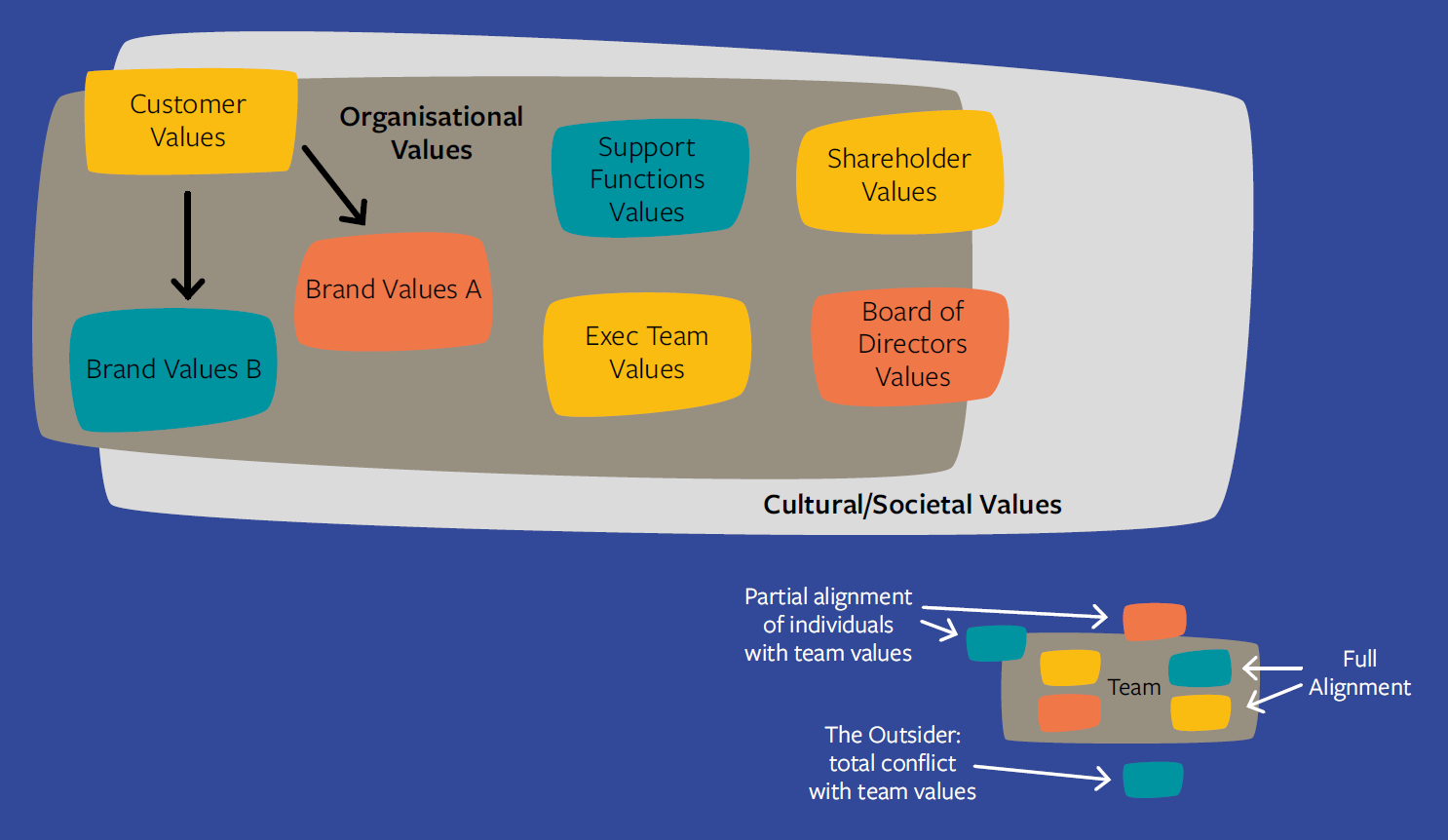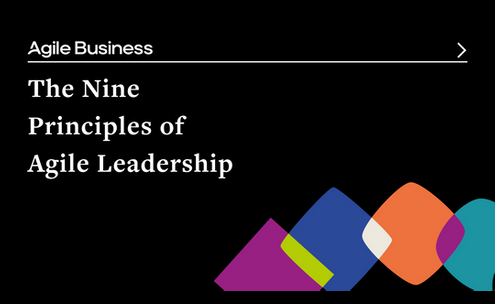Principle 4: People require meaning and purpose to make work fulfilling
Purpose; meaning; engagement; fulfillment; motivation; values
Agile leaders focus on building and sharing a common understanding and purpose. There is a vision of change that is meaningful and applicable to the organisation. The work of the agile leader is to be aware of what is in the hearts and minds of their colleagues then to unify and align those values into inspired action.
A surprising number of people don’t find their work life fulfilling. A YouGov survey1 revealed that 37% of British workers are dissatisfied with their jobs. The survey doesn’t reveal the cause of dissatisfaction. However, the field of psychology offers an understanding of why this might be the case.
Meaning and purpose are important motivators
Daniel Pink identifies three important factors that improve motivation at work. These are autonomy, mastery and purpose.
Autonomous people working towards mastery perform at very high levels. But those who do so in the service of some greater objective can achieve even more.2
The notion of purpose however, is highly subjective, as is the meaning that individuals perceive about their experience. This often leads to tensions in teams and organisations as people make compromises on what is important to them. This results in demotivation affecting individuals and teams who may feel disenfranchised as their values are relegated or dismissed as being unimportant.
We’re here to put a dent in the universe. Otherwise why else even be here? - Steve Jobs
Individual values
Values are the principles that guide individual and group behaviour. Values operate at many different levels as shown in the diagram here. If, as individuals, we are acting congruently with our values (our values align with our work), our lives seem to flow more easily, we are more energised, motivated and even inspired. On the other hand, if we aren’t acting in alignment with our values (incongruent) then our lives tend to be stressed, things don’t flow and we have a conscious feeling that something isn’t right, although we may not know exactly what the issue is. This is termed a “values conflict” when we are not fully aligned, or behaving according to our values. In fact, we are living out another value in place of the one we have previously identified as more important to us.

Organisational/group values
Values are an extremely important part of organisational life, but are often downplayed or underused. Organisations should approach the exercise of eliciting values as more than a tick box activity, otherwise they miss a great opportunity to engage and inspire the wider organisational community. It’s not just about choosing values that sound good, it’s an opportunity to get all the people working together towards a common goal.
It is important, therefore, for Agile Leaders at all levels of the organisation to be mindful of the fact that values operate at all levels – and will vary by person and the role they perform. More importantly they need to be aware of where potential conflicts exist and work towards their resolution.
The Agile Leader will make sure that a team’s values are understood, agreed and continually aligned
This is the underlying secret in helping a team to work with purpose and meaning.
Recruiting the Right Values
Workplace values drive the attitudes and behaviors that the Agile Leader wants to see within their team. These values should include respecting others, keeping promises, showing personal accountability, and providing excellent customer service.
It is important to identify and understand the workplace values of successful team members, so that the Agile Leader can select new recruits who share these values. When interviewing new recruits, the Agile Leader will ask focused interview questions, use role-playing scenarios and tools, look at past history, and use psychometric tests to find new recruits with the best cultural fit.3
The usefulness of values tensions
As the diagram above shows, team values consist of the various individual values; at times compromises are made on personal values in order to remain “part of the team”. Too much compromise will result in high levels of individual dissatisfaction and will eventually result in factions and cliques forming. The ultimate result will be people leaving the team or organisation. Evidence shows that performance will dip where this type of conflict exists; this is what Tuckman refers to as “Group Storming”4. However, once the conflict is resolved, rather than avoided or denied, the team will be stronger. This is achieved either by re-embedding the current values or by taking on new values that allow the group to evolve, living the new value through different behaviours.
The Agile Leader is skilled at helping resolve conflicts by facilitating, coaching and inspiring the team to resolve them for themselves, so creating an environment of shared values
Sources
- Survey into Worklife Fulfillment: - YouGov 2015 d25d2506sfb94s.cloudfront.net/cumulus_uploads/document/g0h77ytkkm/Opi_ InternalResults_150811_Work_W.pdf
- The surprising truth about what motivates us - Pink, D. 2009 Drive. Canongate Books (paperback 2011 edition) p133
- Understanding Workplace Values - mindtools.com/pages/article/understanding-workplace-values.htm pressure, employee satisfaction, ability to prioritise.
- Developmental sequence in small groups - Tuckman, Bruce W. Psychological Bulletin, Vol 63(6), Jun 1965, 384-399
Author

Agile Business Consortium
The Agile Business Consortium is the professional body for business agility. We’re all about community – whether you’re a multinational working through a large-scale transformation, a new start-up, or a contractor, we can support you to achieve more, to grow more, and to build your business agility. As a global not-for-profit organisation that’s been around for over 25 years, our knowledge and experience around agile competencies and behaviours can offer you the guidance you need to reach your agility goals. Together with our partners, we create and share agile research, case studies, resources and tools that help you compete in today’s uncertain world. A registered not-for-profit, we’re the world’s longest-standing agile-orientated organisation. We’re the brains behind AgilePM®, AgileBA®, AgilePgM®, AgilePfM™ and AgileDS™. Based in the UK, we have members in over 30 countries around the world.
Email: [email protected]
- Twitter:
- @Agile_Biz
- Website:
- www.agilebusiness.org
- LinkedIn:
- https://linkedin.com/company/agile-business-consortium


